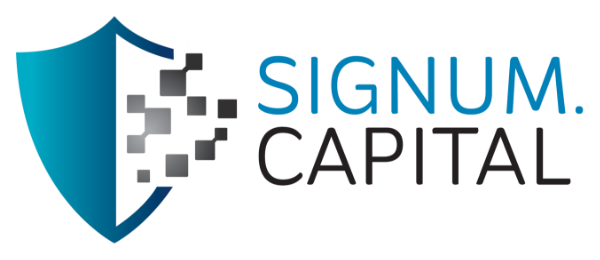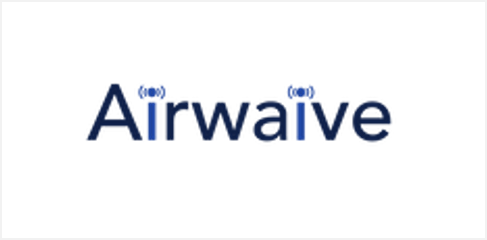Background & Introduction
5G technology has certainly been a key driver of global economic growth, but its full potential is still largely left untapped, with a whopping 49% of global users having no broadband access and 39% being underserved with download speeds below 100 Mbps. For both the unserved and underserved groups, the lack of access has nothing to do with the limitations of technology but is simply a case of poor economics.

For the unserved, it is extremely expensive for ISPs to provide the last mile connectivity between the end-user and the Internet, which is especially the case for rural areas of developed countries and in many developing countries. For the underserved, the high cost for ISPs to provide last mile connectivity is exacerbated by the monopoly of sole existing cable providers.
Given the market gap between Internet Service Providers (ISPs) and access point hosts, Airwaive – the next-generation internet infrastructure provider, enables both parties (ISP and hosts) to freely partner up with one another to accelerate 5G’s development and expansion.
The Airwaive project seeks to decentralize the last mile of the internet – the connection between the end-user and their ISP, to provide connectivity and affordable options for broadband access. It adopts a Marketplace model which acts as a bridge between the traditional Airwaive fiat and cryptocurrency – which establishes contracts at market-driven rates that differ by locale.
Airwaive is an ecosystem consisting of the ISP (Operator), property owners hosting wireless access points (Hosts), and end users (User). By employing the Operator-Host-User model, Airwaive can enable a new generation of ISPs and private property access point hosts with such a network deployment model and incentive program that allows them to prosper, thereby fulfilling the goal of reaching the world’s population with broadband Internet.
Airwaive raised a $3 million seed funding round in early February this year, jointly led by our team at Signum Capital & UOB Venture Management.
Investment Thesis – Why we invested in Airwaive?
Most parts of the world still lack affordable access to the broadband network, creating a digital divide that exclusively benefits those with high-speed access but on the other hand, there are some who do not enjoy such privileged access, be it due to high prices or the areas which they live in. This lack of internet access is most prevalent in developing countries, where 96% of the world’s offline population lives. Thereby, the digital divide also persists between rural and urban areas, with urban dwellers twice as likely to use the internet as people living in rural areas (76% compared to 39%).
Huge Addressable Market – Opening Access to Web3
On that account, there is a huge addressable market for solving the last mile problem of the Internet – since there are significant costs involved for ISP operators to lay cables for the last mile to extend its reach to users in need. Utilizing 5G technology, the cost of fixed wireless solutions can be significantly lowered. Through proper incentivization schemes to promote decentralization using a token reward model, Airwaive has tremendous potential to allow the last mile Internet to be built up more rapidly in contrast to centralized solutions. This is especially true in Southeast Asia, where rural areas and inner regions of countries such as Indonesia, Vietnam and the Philippines do not have affordable access to the Internet. This is closely aligned to our vision of an open and fair internet, because extending the reach of reliable Internet further democratizes web3, allowing more ownership and privacy in DeFi, Metaverse and other web3 ecosystems.
Growing Ecosystem of Operators and Hosts – Gaining Traction
Airwaive has built a strong network of about 44 operators and their partners (mobile carriers, WISPs, IoT ISPs) in the US, with an estimated 6.7 million potential hosts locations in 89 countries registered with Airwaive. There are also plans to roll out services in Los Angeles and Dallas by cooperating with digital NGOs like Comp-U-Dopt and leading ISPs such as Charter (annual revenue of $51B in 2021) and to consolidate digital connectivity across the US. Back in early December 2021, Airwaive and leading electric vehicle manufacturer Rivian Automotive announced a partnership in which Rivian became Airwaive’s first IoT signatory.
Strong Team behind Airwaive – Extensive Experience in the Telecommunications Industry
Airwaive was co-founded by former ZTE and AT&T executive Jeff Yee, together with blockchain serial entrepreneur Bin Zhu, who also previously founded Stratos – a decentralised storage network. Airwaive’s core team members have extensive experience and are mostly veterans of wireless network and blockchain technology, and together, they uncovered a strong use case for their blockchain technology to be employed in the last-mile development of the 5G wireless network.
Competitive Landscape
Currently, Airwaive’s potential competitors include existing ISPs such as local cable companies or software solutions like Sitenna, SmallCellSite, and Aurora Insights. These solutions are often centralized, with higher prices and yet poor service levels/quality. As for blockchain solutions, Helium would be the closest and biggest competitor for Airwaive, since both companies are trending towards a business model for Internet of Things (IoT) and 5G.
| Incumbent ISPs | Software solutions | Blockchain solutions | Airwaive | |
| Companies |
Local cable companies |
Sitenna
SmallCiteSite.com Aurora Insights |
Helium Network |
Airwaive Network |
| Features | Centralized
Incumbents providing the last mile are often centralized, thus leading to expensive services with poor services |
No Incentive Features
These solutions assist operators with site planning but lack the features for managing a network properly and providing rewards to incentivize participation |
Proof of Coverage
Helium uses this consensus mechanism – which only proves network coverage but is unable to provide network usage and business value |
1) Decentralized
2) Proof of Connectivity 3) Rewards system
Airwaive allows operators to build truly decentralized networks, with their specified equipment and SLAs, while providing rewards based on a Proof of Connectivity consensus |
The key competitive advantage is that Airwaive does not need to be bound to any device or manufacturers since they do not produce or require their own hotspot device like Helium – Airwaive allows any network device supported by the operator to directly join its network, thus leveraging its partners’ existing infrastructure and resources to scale its network, reducing overall costs of participation, thus making the entire Airwaive network more competitive and efficient.
Airwave’s Tokenomics
Airwaive’s Token Supply
The total number of tokens is hard capped at 1 billion tokens – with 500 million tokens reserved for mining rewards.
Airwaive’s Token Architecture
The diagram below illustrates the token architecture and the use of a blockchain and verification network for Airwaive’s reward mechanism. This scenario is under the assumption that an active host provides connectivity for one or more end user devices. When connectivity is established, the user, or user’s device, is authenticated for a valid connection, rewarding validated true connections and deterring fraud. A summary of the traffic is also reported from the host in order to understand the type of device (fixed, mobile, IoT, etc) or the speed of the connection to validate true broadband access. This robust mechanism would ensure that the hosts are rewarded in accordance to ensuring Internet connectivity according to the service level agreement, at the same time imposing penalties to the host in case of service interruption.

This diagram below illustrates an overview of 1) Token Minting, 2) Token Issuing, and 3) Verification & Staking Rewards.

- Airwaive Tokens are minted based on Proof of Connectivity consensus, which is inspected by a Verification Oracle. The number of tokens that are minted are based on smart contracts between network operators/investors and network creators in the Airwaive network. The function of the marketplaces is to generate these contracts as it allows localized rates to be agreed upon by both parties and acts as a mechanism to exchange between fiat and cryptocurrency.
- Following the verification of rewards, via Proof of Connectivity consensus, network creators receive rewards. Network creators, such as property owners hosting wireless networking equipment and Internet backhaul providers typically earn rewards each month until the contract expires. Other types of network creators, such as installers or equipment manufacturers, may have contracts for one-time rewards.
The newly minted tokens are not sent to network creator and investor wallets directly, but instead, are put into an issuing position where the token receiver can decide to redeem (through USDT or USDC in Airwaive’s Liquidity Pool) or keep the position to participate in staking rewards or anticipate token appreciation.
- Tokens are also mined and issued to nodes in the network performing Proof of Connectivity consensus – verification oracles. Although the rewards may be mined at given intervals (per hour, per day, per month), as specified in contracts, the total number of tokens available to verification oracles is set to a constant per month. This is referred to as Airwaive Verification Tokens (AVT), which is the number of total tokens available each month.
Network creators and investors with tokens in the issuing position will share network and transaction fees collected in the DAO treasury. This includes any investor of the token in the Airwaive Liquidity Pool, whether generated by network creators, network investors or an investor that directly trades within the pool.
Partnering for the Long Haul – alongside Prominent Investors
Since leading Airwaive’s seed round, we have worked closely with Jeff Yee, CEO and Founder of Airwaive, together with Bin Zhu, the CTO – to foster the company’s mission to decentralize the last mile of the internet for greater affordability and access. Through our interactions with the team on their tokenomics model and token design, we are excited to see the value that it can bring to extend Internet access to the broader masses via their ecosystem and incentive mechanism.
We are proud to be investing with Spartan Group, Athena Ventures, DFG, Gate.io, Jsquare, Fenbushi Capital, Fundamental Labs, Spark Digital Capital, and other notable institutions who are supporting Airwaive in expanding 5G networks around the world.

